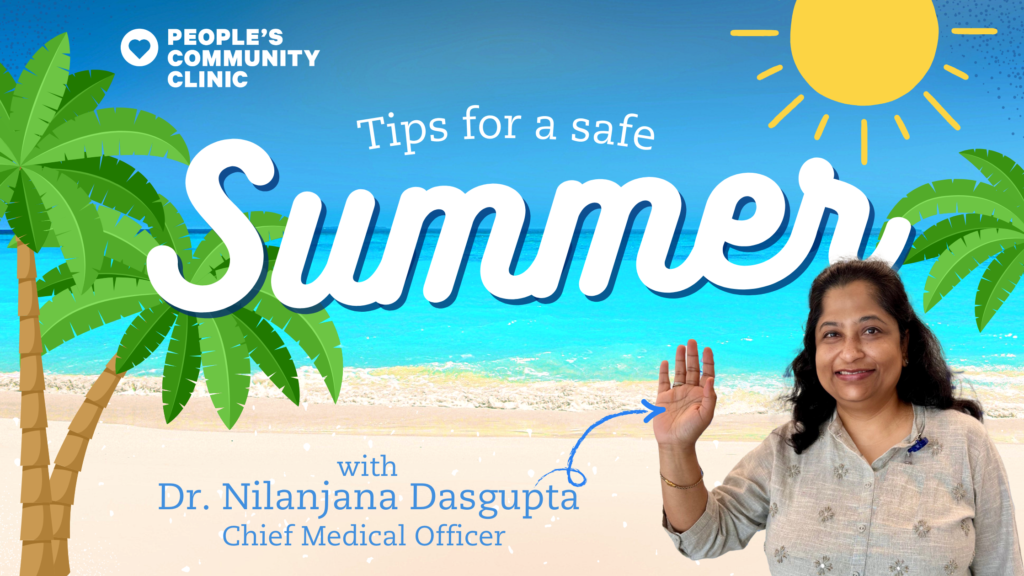Did you know our summers are getting hotter and hotter? The National Oceanic and Atmospheric Administration says we’ve had record-breaking temperatures for 11 months straight!
Our Chief Medical Officer, Dr. Nilanjana Dasgupta, and the CDC have great tips to help you stay safe and healthy like how to avoid getting too hot and how to stay hydrated.
Here are some tips:
- Stay Hydrated: Drink plenty of fluids, especially water. Avoid sugary, caffeinated, or alcoholic beverages, as they can lead to dehydration.
- Stay Cool: Avoid prolonged exposure to high temperatures and direct sunlight, especially during the hottest parts of the day. Spend time in air-conditioned buildings or seek shade when outdoors.
- Wear Appropriate Clothing: Choose lightweight, light-colored, and loose-fitting clothing to help your body stay cool. Wearing hats and sunglasses can also provide protection from the sun.
- Take Breaks: If you’re engaging in physical activity or spending time outdoors in the heat, take frequent breaks in the shade or indoors to cool down. The inside of your car can overheat too — be aware!
- Plan Outdoor Activities Carefully: Schedule outdoor activities for cooler times of the day, such as early morning or evening. If you must be outdoors during peak heat hours, take extra precautions to stay cool and hydrated.
- Protect Your Skin: Use sunscreen with a high SPF and reapply it regularly, especially if you’re sweating or swimming. Sunburn can make it harder for your body to cool down effectively.
- Know the Signs of Heat-Related Illness: Learn the symptoms of heat exhaustion and heatstroke, such as heavy sweating, weakness, dizziness, nausea, and confusion. Seek medical attention immediately if you or someone else shows signs of severe heat-related illness.
By following these tips from the CDC, you can enjoy a safe and healthy summer while minimizing the risk of hyperthermia and dehydration.
View more in-depth information on hyperthermia and dehydration on the CDC website.

